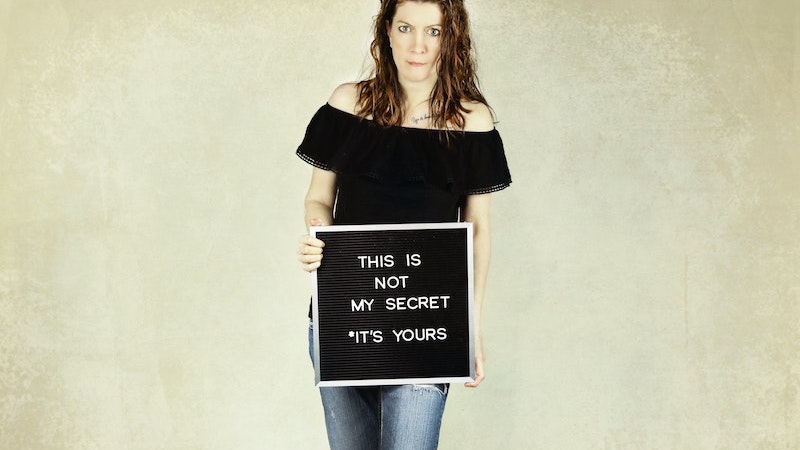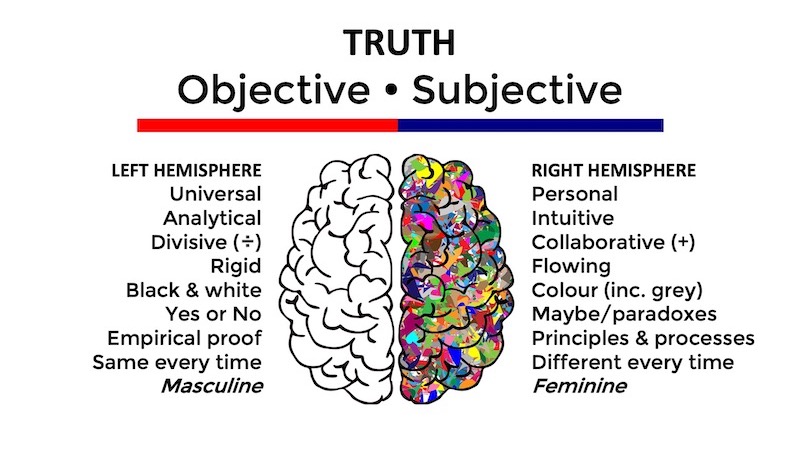The unconscious – realm of subjective truth
- 11 January 2023
- Posted by: Michael H Hallett
- Category: Cornerstones , Patriarchy ,

The human unconscious cannot be understood through objective truth and empirical evidence. This fluid domain is a world ruled by subjective truth.
The realm of the unconscious
In Debugging the Universe, Laura Knight-Jadczyk describes the unconscious as “the realm from where our world manifests, in which are found unfathomable depths of the rejected, the unacknowledged, the unrecognised, the unknown and undeveloped elements of our existence.”
Realm. Interesting choice of word. It designates a boundary—something seemingly hard and finite—yet it has an indefinite, vague, fluid feel to it. Perfect for the unconscious—because it is indefinite, vague, and fluid even while being “the realm from where our world manifests.”
Carl Jung stated that “until you make the unconscious conscious, it will direct your life and you will call it fate.”
“Direct your life.” “From where our world manifests.” That’s some realm.
The realm of subjective truth
But how do we accept the rejected, acknowledge the unacknowledged, recognise the unrecognised, and know the unknown? How do we develop the “undeveloped elements of our existence” when they’re indefinite, vague, and fluid?
We live in a world where objective proof and empirical evidence are generally considered the sole arbiters of truth. How do we navigate the watery depths of our unconscious?
By recognising that objective thinking is the wrong tool for disassembling the unconscious… and by stepping instead into the realm of subjective truth.
Does this mean abandoning logic and reason, observation and deduction? No. It means recognising the difference between subjective and objective truth. This requires us to observe and deduce differently.
What’s the difference between subjective and objective truth?
Subjective and objective truth
It’s easy to drop into the idiom of ‘objective versus subjective truth’. Versus is a combative word. If it’s used for purposes of comparison, as I’m doing here, that’s fine. But not in terms of competition.
Objective and subjective truth don’t compete; they complement each other. Subjective truth answers the questions that objective truth can’t, and vice-versa.
Attributes of objective truth
- Objective witness(es)
- Governed by scientific understanding
- Consistent results of each experiment
Attributes of subjective truth
- Subjective witness(es)
- Governed by principles and processes
- Unique results of each iteration of a process
With objective truth, each iteration of an experiment yields the same repeatable results. It doesn’t matter who performs the experiment, the outcome is the same.
With subjective truth, only the principles and processes are universal (i.e., repeatable). Each iteration of a process produces a unique result, fully in accordance with the principle, and fully grasped only by the subjective witness because the data points produced by the process correspond to their lived experience alone.
Objective and subjective truth are different tools in the human toolbox; consider them as metalworking as opposed to woodworking tools. Metalworking tools are hard, sharp, and linear. Woodworking tools are soft and curved. They apply in different spheres.
Hemispheric dominance
The spheres I’m talking about are the right and left hemispheres of the brain.
The supremacy of objective truth is due to hemispheric dominance, a phenomenon first proposed in 1960 by neurologist Roger W. Sperry. He won the 1981 Nobel Prize for this research. Hemispheric dominance has three core principles:
- Brain functions are specialised between the left and right hemispheres
- Intellectual processing occurs in the left brain
- Most people are left-brain dominant
In other words, we mostly live in—and perceive the world from—the left hemisphere of our brains. That’s the intellectual, objective sphere.
Sperry’s work is now disputed, but what’s indisputable is that the phenomenon he observes exists. The data points of our left-brain dominant society are everywhere to be seen. The diagram below shows some of the differences between left- and right-brain processing.

Note the final correlation of left-brain/masculine and right-brain/feminine. This ties in with our civilization’s basis on ancient patriarchal societies.
Patriarchy
In The Alphabet versus the Goddess, Leonard Shlain (Associate Professor of Surgery at UCSF Medical School) argues that the invention of the alphabet revolutionised human society by fostering a left-brain dominant outlook which destroyed egalitarian, goddess-worshipping Neolithic cultures and replaced them with the first patriarchies.
Personally, I disagree. Alphabets are a symptom of patriarchy, not its cause. Nonetheless, Shlain’s book provides fascinating insight into humanity’s shift from seemingly balanced left/right-brain thinking in neolithic times to our current unbalanced—and unsustainable—left-brain dominant paradigm. A paradigm that denies the validity of subjective truth, which has caused it to be both oppressed and repressed.
It is too simplistic so say that the unconscious holds the contents of our right hemisphere, but the general principle holds. It might be more accurate to say that the right lobe of the brain is the gateway to the unconscious—and to subjective truth.
The truth shall set you free
Subjective truth may sound like an excuse for fantasy, delusion, and self-serving pseudo-analysis. Peering into the crystal ball of one’s unconscious, plucking out whatever massages our fragile ego. ‘Marking our own homework’.
No, it isn’t.
Because when you uncover one of the subjective truths lurking in your unconscious, positive change happens. Trauma releases. Addictions loosen. Behaviours change. And the changes always happen in accordance with the principles and processes of subjective truth.
Those two data points—positive change that aligns with principles and processes—are the essential, must-have, non-negotiable signs of genuine personal truth.
Without them, you haven’t nailed the truth. Try again. Do not pass ‘Go’. Do not collect £200.
With them, you will know it. You will feel it. You will see it. It’s unmistakeable because your life changes.
This is “the truth that sets you free” because it frees you from traumas, phobias, addictions, and other negative patterns of thought, feeling, and behaviour. You must first set free the need for objective truth—only then can you enter the realm of subjective truth.
Photo by Jen Theodore on Unsplash
